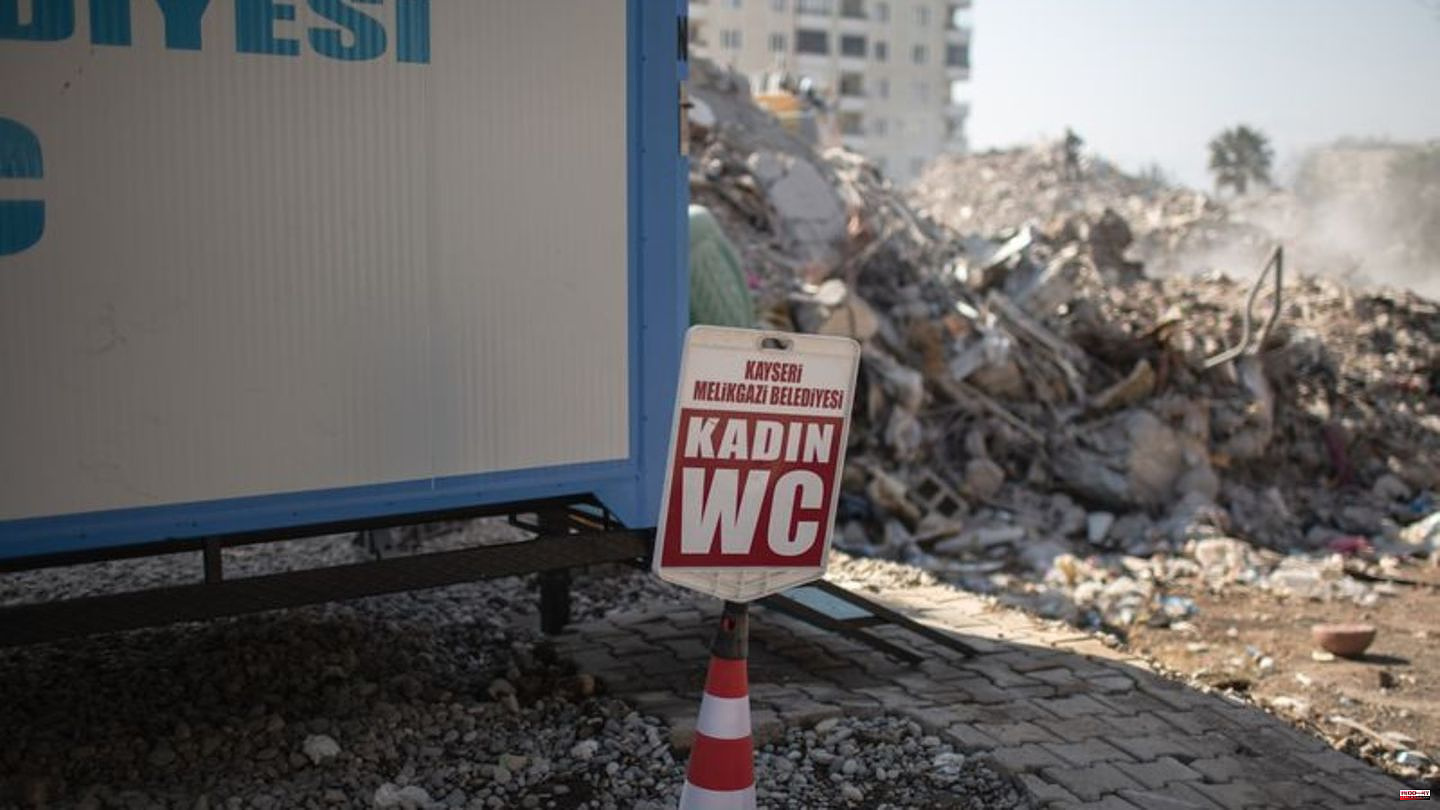Sometimes Elif Yasar goes to her collapsing house to wash. Actually, she shouldn't have entered it after the earthquake. "We haven't showered in two weeks," she says, half apologetically. With an oven, she and her daughter Melike then heat up the water they have brought with them, there is no tap water, but at least privacy. One is standing at the door, if an aftershock comes, you can get out quickly, so the hope.
Since the earthquake two weeks ago, the 40-year-old has been living with her family in a camp at the entrance to the southern Turkish city of Kahramanmaras. Tent is lined up here after tent. Stovepipes stick out, coal stoves are used for heating - the smell hangs in the air, smoke obscures the view.
people in emergency shelters
Around 1.6 million people live in emergency shelters in Turkey alone in the earthquake region. How many there are in Syria is unclear. According to the UN emergency relief office Ocha, people from 40,000 households became homeless after the disaster.
People stay in tents, with relatives in the village, or on trains at the station. Some are comparatively well cared for, with heaters, regular meals, showers and childcare. Others live in unheated tents with no running water or sanitation. In Antakya, which was completely destroyed, people report that they have to go outside to defecate. According to medical experts, this means that germs can get into the groundwater. In view of the precarious living conditions of many earthquake victims, doctors are already warning of the next catastrophe in Turkey and Syria: the outbreak of epidemics.
Difficult situation in Syria
The situation in Syria is even more difficult than in the neighboring country: In the north-west, due to war and displacement, people have long had insufficient medical care, says MSF deputy chair Parnian Parvanta. "Even before the earthquakes, there were cases of cholera in this region." According to the UN, there are currently 47,000 suspected cases and 20 deaths in northwestern Syria that may be related to cholera. Dozens died from diarrhea in Syria last year.
Cholera is actually easy to treat - if those affected have access to medical care. According to the World Health Organization (WHO), cholera can lead to kidney failure or even death due to significant fluid loss.
water treatment problems
The tremors have destroyed hospitals and sanitary facilities, according to MSF. Therefore, there are problems with water treatment in many places. The many bodies that have not yet been recovered could also pollute the water, warns Thomas Geiner, a doctor with earthquake experience and part of the disaster relief team from the Navis association. Thousands of people are also believed to have died in the rubble in Turkey. The authorities are trying to rescue them as quickly as possible, also with help from Germany.
"In the regions where people have no access to clean drinking water, there is a risk of epidemics at some point," warns Geiner. Parvanta from Doctors Without Borders even fears that an epidemic could break out in the earthquake area, given the cholera that is already rampant. "The situation could get out of control," agrees Muhannad Hadi, the UN emergency aid coordinator responsible for Syria. He also sees the danger of a cholera outbreak in Turkey - especially if the temperatures rise again.
Avoid infectious diseases
The head of the Adana Medical Association, Selahattin Mentes, does not yet see any signs of this in Turkey, but warns: Safe accommodation such as containers, a supply of running water, hygiene and waste disposal are now the most urgent things to avoid infectious diseases. The aid organization Doctors Without Borders is also calling for emergency water and sanitary facilities to be provided quickly in the earthquake area.
Another risk factor for epidemics is large crowds. In camps where people displaced by violence and bombs, especially in Syria, lived under terrible conditions before the earthquake, the many new homeless people are now looking for refuge. "The resources in these places are far from sufficient to meet people's needs for drinking water, toiletries and other basic necessities," Parvanta warns. A lack of vaccinations can also become a problem here - and promote the spread of measles, for example.
The situation in Turkey and Syria reminds him of the situation in Haiti after the earthquake in 2010, says doctor Geiner. At that time, more than 200,000 people died as a result of the earthquake - and then thousands more of cholera.












